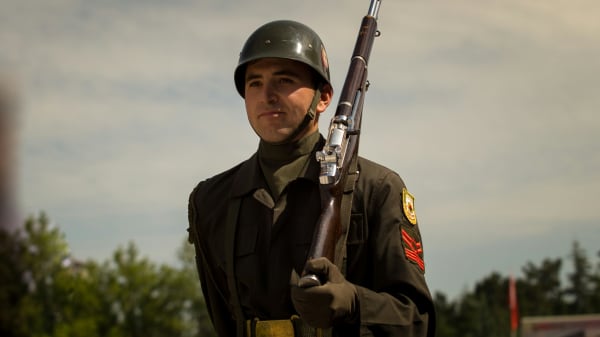Military life is often characterized by rigorous discipline, obedience, tough training, and a great sense of duty. However, at the heart of all of these tenets stands one uniting factor: teamwork. Just as a symphony orchestra cannot produce a harmonious melody without the cooperation of all its elements, the military too, cannot function optimally without rigorous teamwork. Thus, the relevance of teamwork in military jobs cannot be emphasized enough. This article will delve into unpacking the depth and scope of this subject.
Teamwork: The Lifeblood of Military Operations
Soldiers going about their duties in lockstep, wrapped in camouflage uniforms, with piercing focus and a steely resolve, is indeed an impressive sight. But behind this display of appeal lies a unique system. This system runs on trust, mutual respect, cooperation, and communication - the core elements of military teamwork.
- Trust: In a precarious situation like a battleground, trust is not just a necessity, it's a survival tool. Soldiers trust each other implicitly and entrust their lives to their comrades in arms. This trust doesn't magically appear; it's built through countless rigorous training sessions and shared experiences.
- Mutual Respect: Recognizing each individual's capabilities and acknowledging the value they add to the team is crucial in nurturing a strong military unit. This respect generates a positive, supportive atmosphere crucial for high-stakes missions.
- Cooperation: A military operation requires a symphony of different roles. From frontline soldiers to support staff to strategists, everyone must cooperate seamlessly for a mission to be successful.
- Communication: Like any solid team, communication forms the lifeblood of military units. Miscommunication or lack of communication can lead to disastrous outcomes.
The Role of Teamwork: From Training to Battlefield
The importance of teamwork in the military can be seen right from basic training. The aim is to mold disparate individuals into a cohesive unit, where everyone knows their role and the collective goal. This unity proves vital in high-pressure combat situations.
In fact, after their training, soldiers are often assembled into small teams that work, eat, sleep, and train together. This encourages them to develop an intimate sense of camaraderie and cultivate a deeper understanding of their teammates' strengths and weaknesses. This synergy primes them for any eventualities that can pop up in combat situations.
Furthermore, teamwork extends beyond just the small teams. It encompasses the vast network of personnel in the military, each playing their part to support the frontline soldiers. This ranges from caterers who ensure the nutrition of soldiers to the tech units ensuring communication remains intact.
Teamwork Facilitating Elite Units
In more specialized and elite military units, such as the Navy SEALS, teamwork’s importance takes on an even more pronounced role. Highly coordinated teamwork, trust, communication, and cooperation are pivotal for the success of their complex and dangerous missions.
Failure is not an option for these squads. It is quintessential for every team member to trust one another, know their role, and work in unison, thus offering them the best possible chance of accomplishing their mission. If even one cog in this machinery of teamwork fails, the entire team could be in peril or the mission could fail.
Optimal Utilization of Resources
From a tactical viewpoint, competent teamwork ensures optimal utilization of resources— such as manpower, ammunition, and support systems. This is only possible through efficient communication and a clear understanding of everyone's role within the team, which are some of the core principles of military teamwork.
Imagine a mission where the soldiers run out of ammunition, communication lines are cut off, and support systems are delayed. Such a situation can not only jeopardize the success of the mission but also endanger the soldiers' lives. Teamwork ensures each player knows their part and plays it efficiently.
Resilience in the Face of Adversity
Good teamwork helps the military become resilient in the face of adversity. The pressure of the battleground can be overwhelming. However, knowing they have their team's unwavering support can bolster soldiers' morale and enable them to perform at their best even under the most grueling circumstances.
A well-bonded team can lend emotional and mental support to its members. The morale boost provided by an empathetic team can work wonders for a soldier's performance and propensity to bounce back from setbacks.
Building a Legacy of Teamwork
The legacy of military teamwork is not just confined to armed forces or warfare. The lessons absorbed in the military about teamwork can hold valuable insights for civilians as well - be it in life or business scenarios. The values of trust, communication, respect, and cooperation that are essential to military teamwork can effectively enhance any team's performance outside the military.
To sum it up, teamwork in the military is not just important—it's indispensable. At the frontline of defense and peacekeeping missions, the military is only as strong as the bond and unity of its soldiers. Teamwork allows for optimal utilization of resources, instills resilience, lays the foundation for trust, and leads to the success of military missions.
So, when you see soldiers marching in perfect synchronization or hear about successful military operations, remember that behind these victories lie countless hours of training, trust building, and adherence to the code of military teamwork—a testament to the power of unity.




